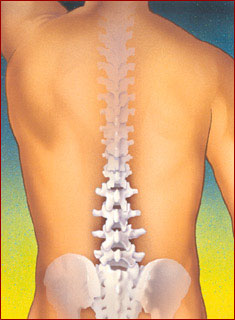Elevate Your Health 30 Nutrition Tips for Wellness
Elevate Your Health: 30 Nutrition Tips for Wellness
Fuel Your Body with Nutrient-Dense Foods
Nutrition is the cornerstone of good health, and it starts with what you put on your plate. Focus on filling your diet with nutrient-dense foods like fruits, vegetables, whole grains, lean proteins, and healthy fats. These foods provide essential vitamins, minerals, and antioxidants that support overall wellness and vitality.
Hydrate with Plenty of Water
Proper hydration is crucial for optimal health. Water plays a vital role in almost every bodily function, from regulating body temperature to flushing out toxins. Aim to drink at least eight glasses of water a day, and adjust your intake based on factors like activity level, climate, and overall health.
Balance Your Macronutrients
A well-balanced diet includes a combination of carbohydrates, proteins, and fats in the right proportions. Carbohydrates provide energy, proteins support muscle growth and repair, and fats are essential for hormone production and nutrient absorption. Aim to include a source of each macronutrient in every meal for sustained energy and overall health.
Choose Whole Foods over Processed Options
Processed foods are often high in unhealthy fats, sugars, and additives that can negatively impact your health. Instead, opt for whole, minimally processed foods that are rich in nutrients and free from artificial ingredients. Choose whole grains, fresh fruits and vegetables, lean proteins, and healthy fats to nourish your body and support optimal health.
Practice Portion Control
Even healthy foods can contribute to weight gain if consumed in excess. Practice portion control by paying attention to serving sizes and listening to your body’s hunger and fullness cues. Eat mindfully, savoring each bite, and stop eating when you feel satisfied, not stuffed.
Limit Added Sugars
Excessive sugar consumption has been linked to a variety of health problems, including obesity, type 2 diabetes, and heart disease. Limit your intake of added sugars by choosing naturally sweet foods like fruits and avoiding sugary beverages, processed snacks, and desserts.
Prioritize Fiber-Rich Foods
Fiber is essential for digestive health and can help prevent constipation, regulate blood sugar levels, and lower cholesterol. Fill your plate with fiber-rich foods like fruits, vegetables, whole grains, legumes, nuts, and seeds to support a healthy digestive system and overall well-being.
Incorporate Healthy Fats into Your Diet
Not all fats are created equal, and certain fats are essential for optimal health. Incorporate healthy fats like avocados, nuts, seeds, and olive oil into your diet to support heart health, brain function, and hormone production. Limit saturated and trans fats found in processed and fried foods, which can increase the risk of heart disease.
Eat Mindfully
Mindful eating is the practice of paying attention to the sensations of eating, such as taste, texture, and hunger cues, without judgment or distraction. Slow down, savor each bite, and listen to your body’s signals of hunger and fullness. By eating mindfully, you can enjoy your food more fully and make healthier choices that support your well-being.
Plan and Prepare Healthy Meals
Meal planning and preparation are key to














